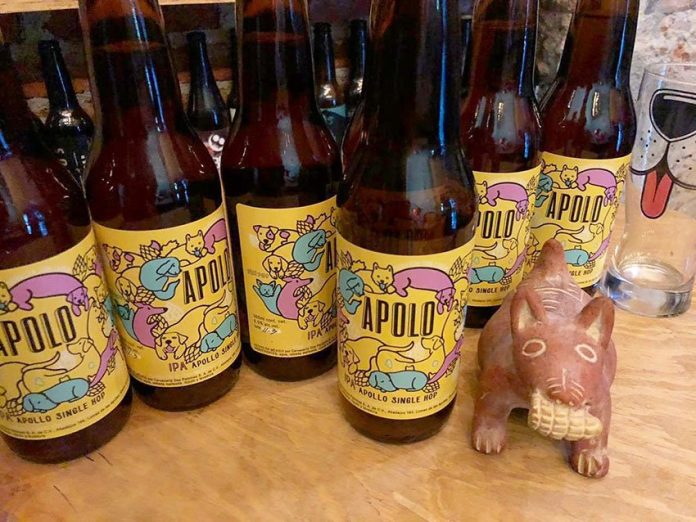Drink a beer, rescue a dog could well be the slogan for Apolo, a Mexican craft beer born from the collaboration of an animal rescue organization and a brewer.
The beer is named after Apolo, a dog that had been trained to fight and was later abandoned by its owner. The animal was subsequently rescued by a family.
Part of the price for every bottle of Apolo sold is donated to an initiative organized by Apolo & Friends that rescues street dogs, rehabilitates them and then finds them a home and family.
The brewer, Dos Palomas, is also made up of people “interested in making animal abuse less frequent, dignifying mongrel dogs, promoting respect toward animals and in making adoption an alternative to the purchase of a friend.”
The beer, an India pale ale, is currently only available at several Mexico City and Taxco, Guerrero, establishments that support Apolo’s cause.
Source: El Financiero (sp)
